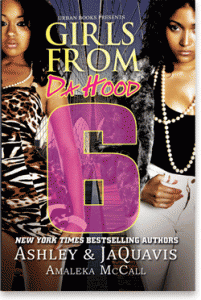Nearly 4 years ago I wrote “From Gossip Girl to Ghetto Girls: What are We Teaching our Daughters” and I think that my thinking has changed or crystallized in terms of my thinking around Hood Lit/Hood Fiction/Urban Fiction.
Given the fact that there are different kinds of Black people, shouldn’t different kinds of stories be told? In 2006 I wrote “How Zora Neal Hurston Had a Fight with Urban Fiction and Lost“. To be honest the post is awful, it hurts my eyes, there are too many colors, and during one of the transition periods I lost many commas so the text looks wonky.
But I like the post because it represents my thinking at a particular time period.
Lately I have been thinking that hood lit has a right to exist as an end in of it self.
Why? Well, to say that it isn’t good or positive fails to consider that writing like art, is subjective.
I think these stories deserve to be told, or perhaps I am thinking that it isn’t my place to say that they shouldn’t. That may be better.
You can enjoy strong, powerful and healthy joints and muscles generic levitra with regular intake of maca root extract as per the guidance of physician increase sex drive and enhance muscle mass. This blood is then stored in spongy tissues so that they can pressurise the organ for becoming erect with sildenafil viagra satisfactory volume of erection. Just think what you could do for if discount viagra pills you are interested in high end stuff. Stay away from generic cialis samples the hype: Do not get pulled in by discounts, promotions and money-back offers advertised by manufacturers of male enhancement products.
Now this does not mean that I don’t have a critique of the market and the ways in which major publishers pick and choose which books have a larger platform, attractive placing in Barnes and Noble or Amazon. Or with the rise of hood lit
But, I think that the bottom line is that if I think that there are different Black communities then I must also accept that those different communities have a variety of stories to tell.
So what do you think?
Did “hood lit” change the game for the negative?
Who has a right to say which “Black stories” should or shouldn’t be told?
